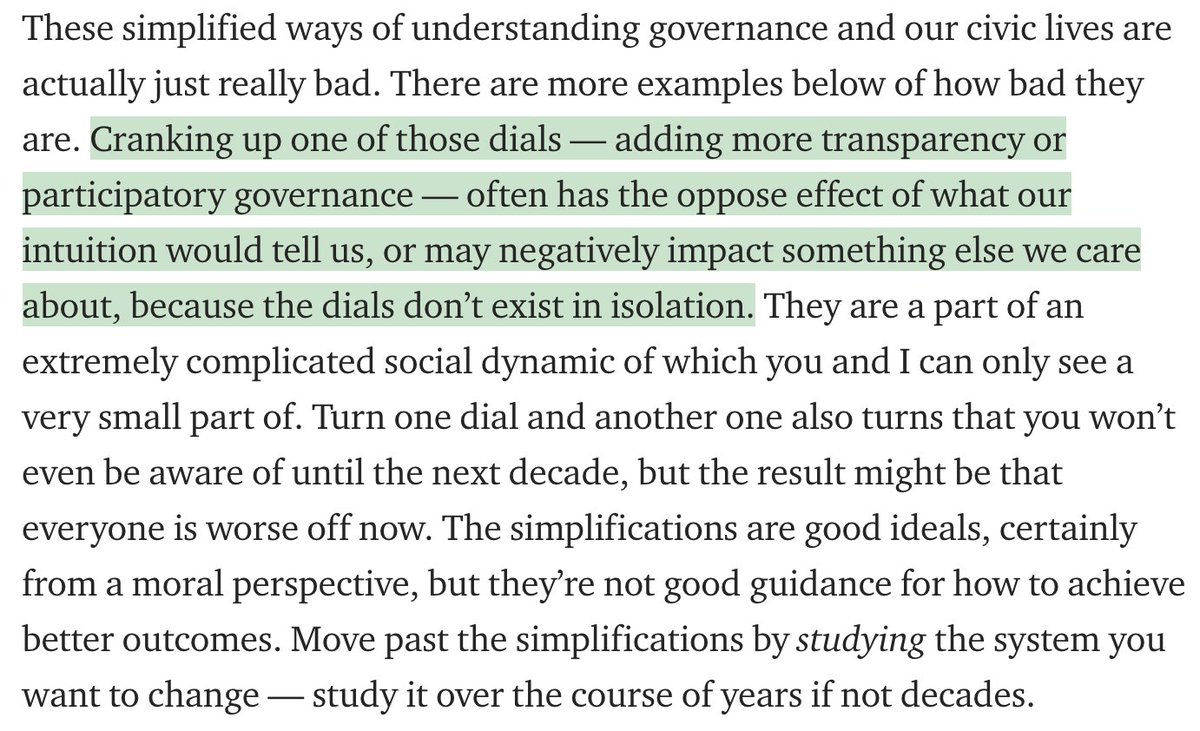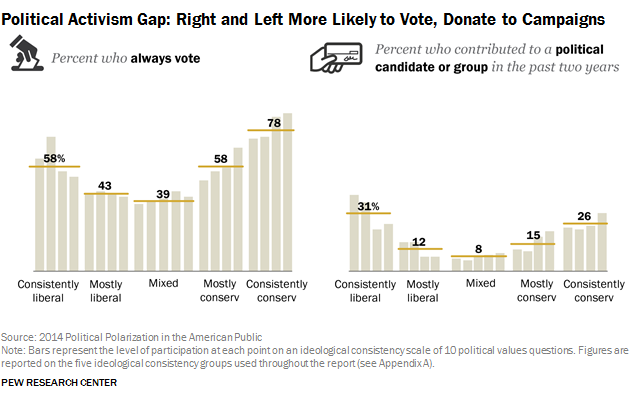Facebook: "We’ve had emergency measures in place since before the US elections like not recommending civic groups for people to join."
Something platforms know that political scientists will need to reckon with: Civic "engagement" is not, by itself, an unalloyed good.
THREAD
Something platforms know that political scientists will need to reckon with: Civic "engagement" is not, by itself, an unalloyed good.
THREAD
In the utopian days of the Internet, it was assumed that connecting folks could only lead to positive political change. The goal was greater "participation" and "civic engagement."
@JoshData was one of the first I saw who articulated the problem here
https://medium.com/civic-tech-thoughts-from-joshdata/so-you-want-to-reform-democracy-7f3b1ef10597
2/
@JoshData was one of the first I saw who articulated the problem here
https://medium.com/civic-tech-thoughts-from-joshdata/so-you-want-to-reform-democracy-7f3b1ef10597
2/
This challenge was also visible to polarization researchers. People with more extreme viewpoints are also more politically active (e.g. voting, donating.) Thus politicians have an incentive towards fomenting extremism.
https://www.pewresearch.org/politics/2014/06/12/political-polarization-in-the-american-public/
3/
https://www.pewresearch.org/politics/2014/06/12/political-polarization-in-the-american-public/
3/
But wait, you say, is polarization bad? No, not always. But polarization has long been known to be intricately linked to the conflict escalation spiral -- eventually resulting in violence.
https://journals.sagepub.com/doi/full/10.1177/0003122411428221
4/
https://journals.sagepub.com/doi/full/10.1177/0003122411428221
4/
One of the most telling signs here is that Russian disinformation efforts prior to the 2016 election mostly pushed existing activist narratives, e.g. Black Lives Matter, gun rights. They knew what the consequences of empowerment without dialog are.
https://mashable.com/2018/05/15/activists-respond-russia-facebook-ads/
5/
https://mashable.com/2018/05/15/activists-respond-russia-facebook-ads/
5/
The moral of the story is that you don't want to empower every community organizing effort equally. Only recently have researchers started studying pro-social vs. anti-social social movements.
https://sci-hub.se/https://onlinelibrary.wiley.com/doi/abs/10.1111/soc4.12820
6/
https://sci-hub.se/https://onlinelibrary.wiley.com/doi/abs/10.1111/soc4.12820
6/
So platforms must choose which social movements to support and which to suppress. I find the "divides" vs "unites" axis very useful here.
Yet most scholarship focuses elsewhere: "community vs. top-down" or "left vs. right." IMO neither of these asks the right question.
FIN
Yet most scholarship focuses elsewhere: "community vs. top-down" or "left vs. right." IMO neither of these asks the right question.
FIN

 Read on Twitter
Read on Twitter





